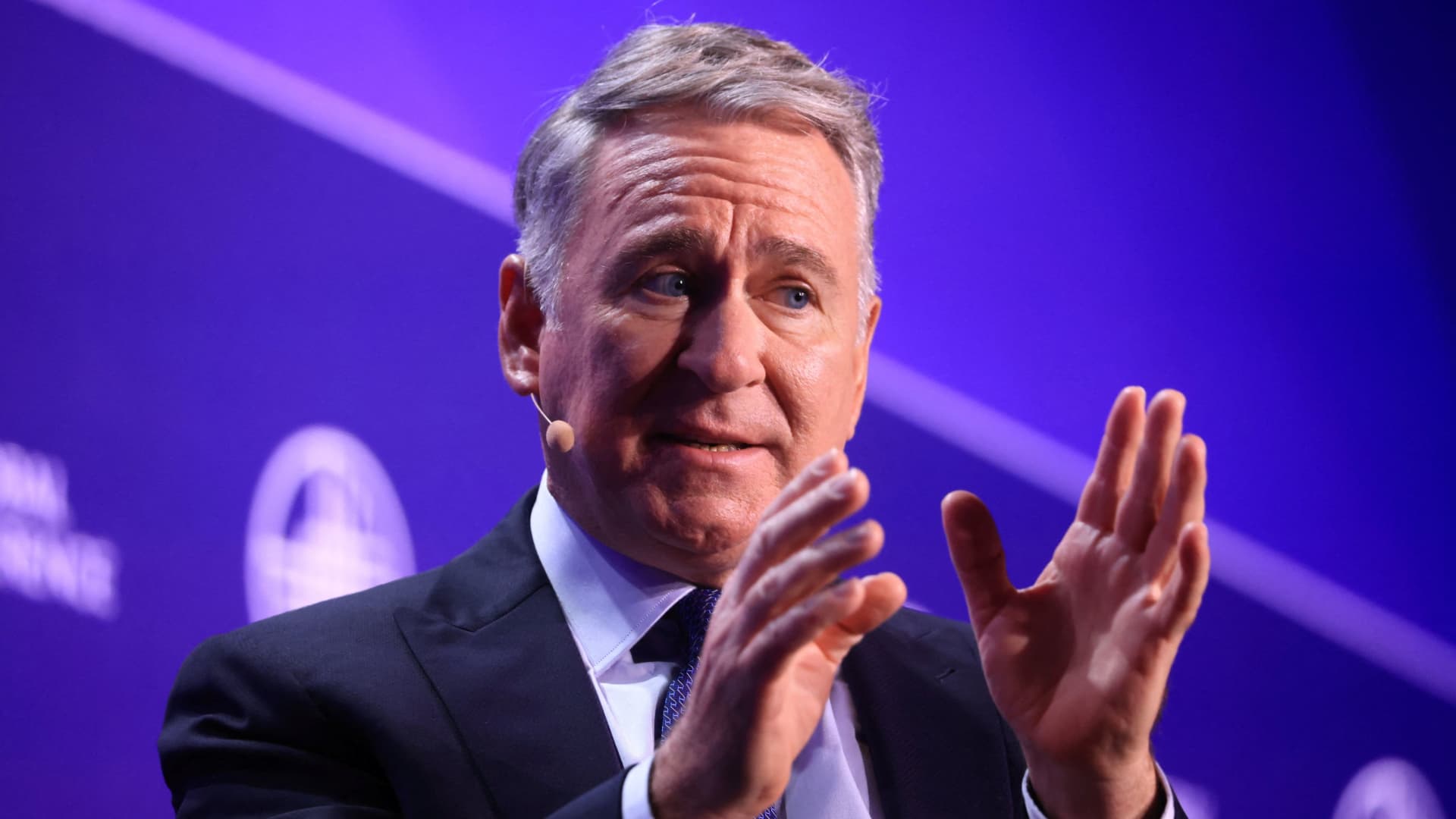Ken Griffin, founder and CEO of Citadel, said President Donald Trump’s global trade fight risks spoiling the reputation of the country and its government bond market.
“The United States was more than just a nation … it’s a universal brand. Whether it’s our culture, our financial strength, our military strength, America rose beyond just being a country,” Griffin said at Semafor’s World Economy Summit in Washington, D.C., Wednesday. “It was like an aspiration for most the world, and we’re eroding that brand right now.”
Trump’s rollout of the highest tariffs on imports in generations shocked the world earlier this month, triggering extreme volatility on Wall Street. Days later, the president announced a sudden 90-day pause on much of the increase, except for China, as the White House sought to make deals with countries.
In reaction to the political tensions, Treasury yields rose and the dollar weakened against its global counterparts in a sign that investors are moving away from the U.S. as the safest place to invest.
“In the financial markets, no brand compared to the brand of the U.S. Treasury market, the strength of the U.S. dollar. The strength, the credit worthiness of U.S. Treasurys, no brand came close. We put that brand at risk,” Griffin said.
Griffin, whose hedge fund had more than $65 billion in assets under management at the beginning of 2025, voted for Trump and was a megadonor to Republican politicians. However, he has been highly critical of Trump’s trade policy, calling the president’s rhetoric “bombastic.”
“The President and the Secretary of Treasury and the Secretary of Commerce need to be very thoughtful when you have a brand, you need to behave in a way that respects that brand, that strengthens that brand, because when you tarnish that brand, it can be a lifetime to repair the damage that has been done,” Griffin said.
Get Your Ticket to Pro LIVE
Join us at the New York Stock Exchange!
Uncertain markets? Gain an edge with CNBC Pro LIVE, an exclusive, inaugural event at the historic New York Stock Exchange.
In today’s dynamic financial landscape, access to expert insights is paramount. As a CNBC Pro subscriber, we invite you to join us for our first exclusive, in-person CNBC Pro LIVE event at the iconic NYSE on Thursday, June 12.
Join interactive Pro clinics led by our Pros Carter Worth, Dan Niles, and Dan Ives, with a special edition of Pro Talks with Tom Lee. You’ll also get the opportunity to network with CNBC experts, talent and other Pro subscribers during an exciting cocktail hour on the legendary trading floor. Tickets are limited!

 Blog Post1 week ago
Blog Post1 week ago
 Economics1 week ago
Economics1 week ago
 Finance1 week ago
Finance1 week ago
 Economics1 week ago
Economics1 week ago
 Economics1 week ago
Economics1 week ago
 Personal Finance1 week ago
Personal Finance1 week ago
 Accounting1 week ago
Accounting1 week ago
 Economics1 week ago
Economics1 week ago









